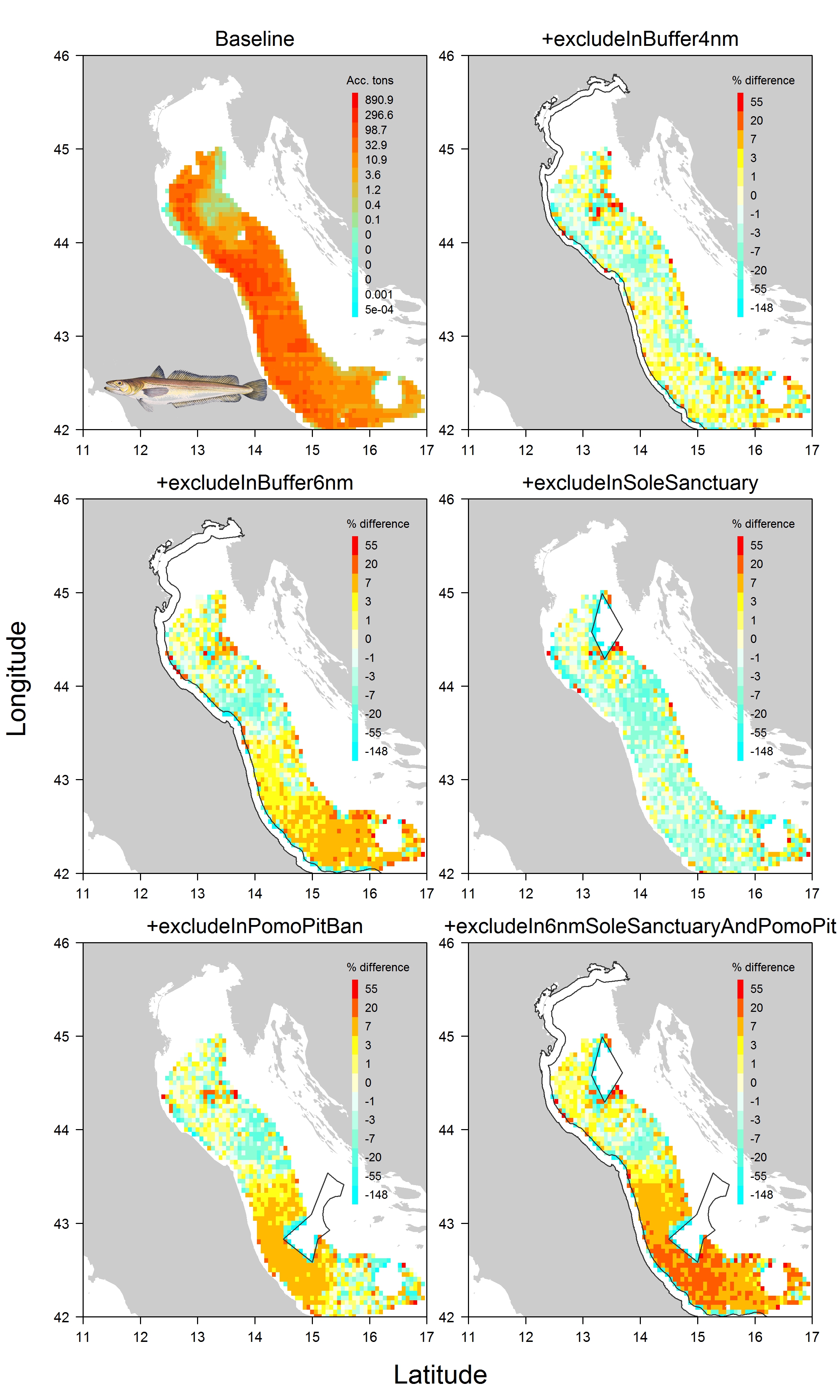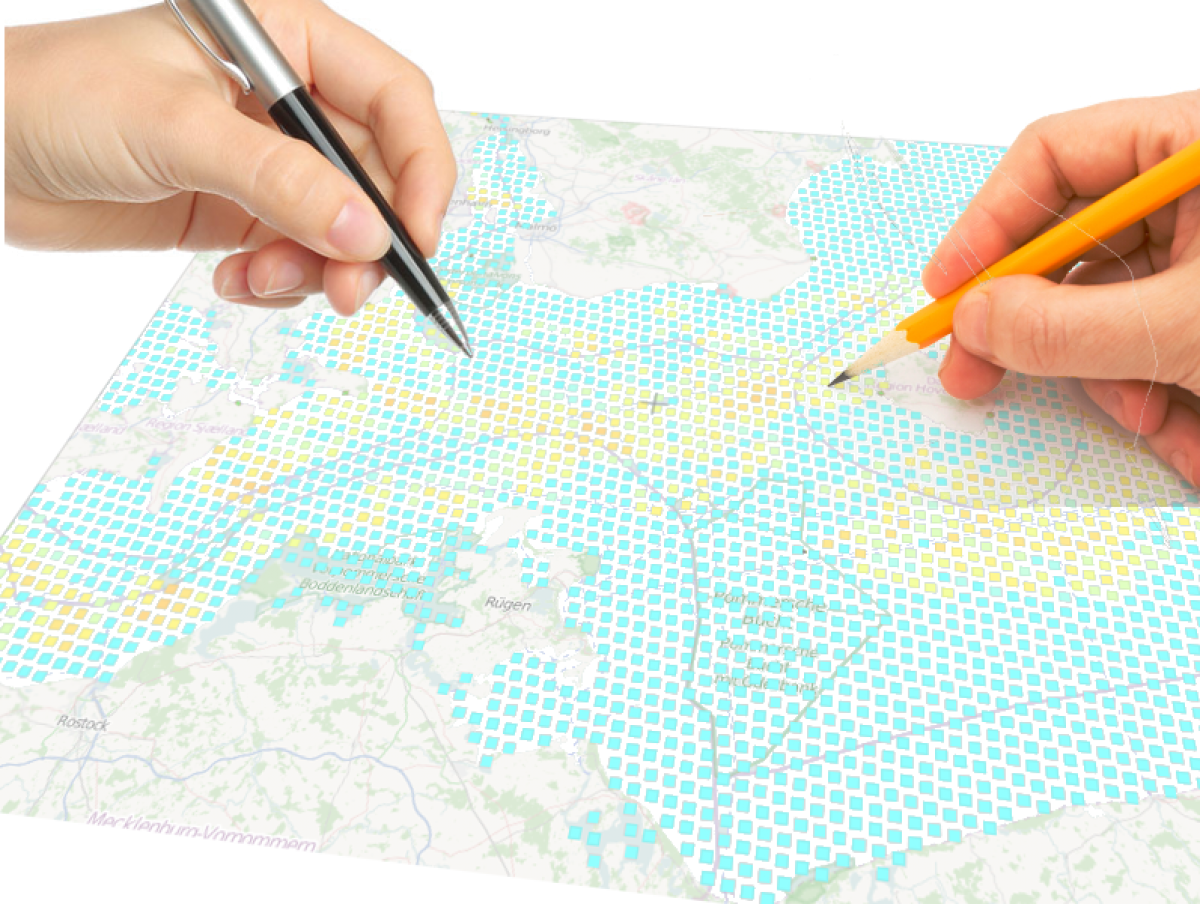The Adriatic Sea is one of the most crowded marine areas. Several fishing activities operate simultaneously in the area, and the need to minimize conflicts among them is also a social concern. We apply a fish and fisheries model accounting for space and time effects to study the impact that would result from a suite of spatial plans suggested by practitioners in order to reduce the pressure on the four main demersal fish and crustacean stocks (having high commercial interest) in the northern Adriatic. We also look at promoting space sharing between mutually exclusive activities.
Check out the open access paper for more information in Ecosphere

DISPLACE is a spatial impact assessment tool to anticipate the consequences of displacing fisheries on ensuring a better sustainability and economy of fisheries. The model simulates the activity of individual vessels and how they will use their time fishing and where given restrictions in space and time. By applying the model that fit the local fisheries of the Adriatic region, practitioners could further develop tailored applications to their area for both understanding the fine dynamic of the interlinked fish and fisheries here, and, in the meantime, acquire a helicopter view of the outcomes when the small-scale (fishing) operations at sea are aggregated. That kind of framework applied to the Adriatic or other areas should analyze and provide data with thematic reports/scenario on which the practitioners can rely on to project the fish stock population levels and fishery economy relevant to the ecoregion. The model contributes to the coordination and integration of different spatial activities in marine areas with the purpose of reducing potential inefficient management and use of space in accordance with the aims of the EU Marine Spatial Planning Directive (MSPD) and other Directives. In the project, the model is used to estimate the consequences of closing specific areas to fishing.

Francois Bastardie is a DTU-Aqua Senior Scientist and method developer in the Section of Ecosystem-based Marine Management with a Ph.D. in Biological Science. He has been involved in several national and EU Funded projects developing expertise in spatial fisheries and fisheries databases. He has a strong background in modeling fishing and the bio-economic dynamics including developing agent-based models for combining marine ecosystems and natural resource extraction models, fisheries economics in a mixed fisheries perspective. He has an experience of 10 years leading to more than 35 peer-reviewed publications by conducting scientific-based fisheries management evaluation with scenario-testing evaluation and simulations, including fleet dynamics and consequences on the economy of fisheries, population dynamics and fish stock assessment. He was in charge of the evaluation of some of the EU long-term fisheries management plans with consequent participation to ICES and STECF working groups, including giving advise from regional to international policy makers.

Author: Francois Bastardie
Francois Bastardie is a DTU-Aqua Senior Scientist and method developer in the Section of Ecosystem-based Marine Management with a Ph.D. in Biological Science. He has been involved in several national and EU Funded projects developing expertise in spatial fisheries and fisheries databases. He has a strong background in modeling fishing and the bio-economic dynamics including developing agent-based models for combining marine ecosystems and natural resource extraction models, fisheries economics in a mixed fisheries perspective. He has an experience of 10 years leading to more than 35 peer-reviewed publications by conducting scientific-based fisheries management evaluation with scenario-testing evaluation and simulations, including fleet dynamics and consequences on the economy of fisheries, population dynamics and fish stock assessment. He was in charge of the evaluation of some of the EU long-term fisheries management plans with consequent participation to ICES and STECF working groups, including giving advise from regional to international policy makers.
View all posts by Francois Bastardie


